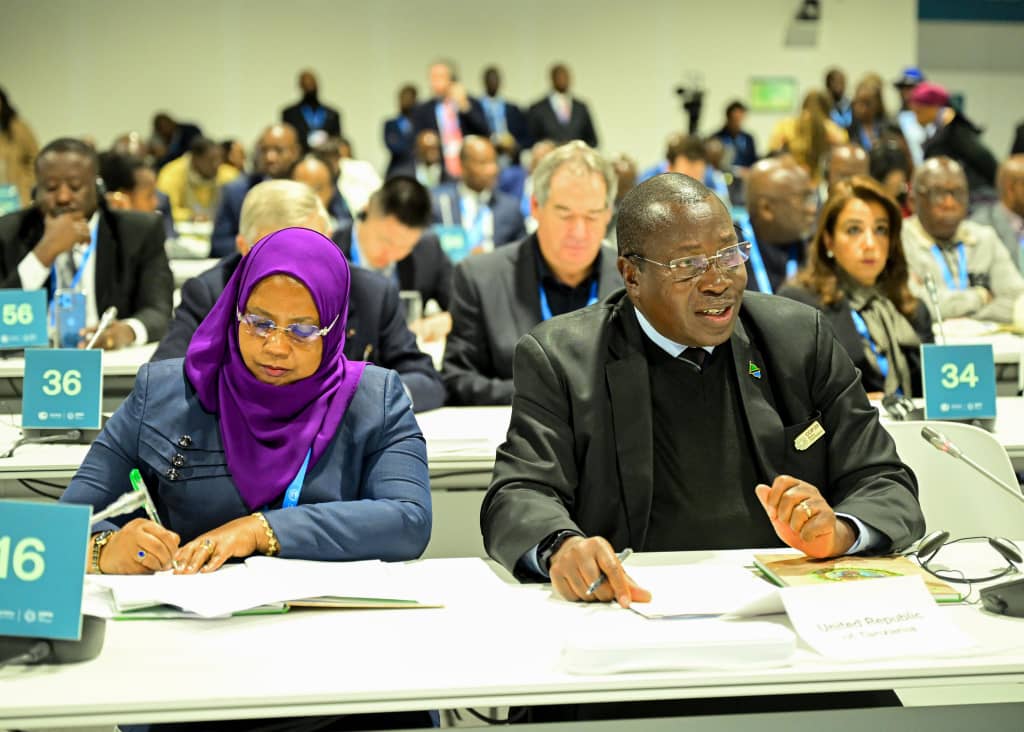Baku, Azerbaijan. The 29th Conference of the Parties (COP-29) to the United Nations Framework Convention on Climate Change continues in Baku, Azerbaijan, with Tanzania among the participating nations.
Speaking at a side event on Green Wealth for African Nations, Tanzania’s Vice President, Dr Philip Mpango, emphasized the importance of strengthening Africa’s carbon monitoring systems to capitalize on the global carbon market, which now exceeds $900 billion.
Dr Mpango urged African countries to lead global discussions to recognize green resources as a significant component of national income for African nations.
Despite Tanzania’s wealth in green resources, including strategic minerals critical to the clean energy transition, biodiversity conservation, carbon storage, pollution control, and soil fertility, he noted that these resources remain largely excluded from the national income.
“Tanzania is investing in alternative energy sources, such as geothermal, solar, and wind. President Samia Suluhu Hassan has also championed efforts to reduce reliance on polluting cooking fuels, which drive deforestation and degrade carbon reserves,” Dr Mpango said.
He highlighted the need for regional cooperation in managing and developing Africa’s green resources, such as forests, strategic minerals, and clean energy sources, which often cross national borders.
Dr Mpango called for policies across African nations that support sustainable use and investment in green resources.
Environmental activist and social scientist Shamim Nyanda echoed Dr Mpango’s views, noting that other African leaders have also been advocating for carbon trading as a potential revenue source.
Nyanda explained that Tanzania could benefit from reducing greenhouse gas emissions by protecting carbon reserves through tree-planting initiatives, clean energy projects, and conservation of ocean and land resources.

“There is green carbon, which includes forests, clean energy, and land, and blue carbon, which includes oceans, seaweed, and mangroves. The question is how Tanzania and the continent can position themselves in this market to improve the quality of their carbon assets for global markets,” Nyanda said.
She added that accurate carbon data and reliable reporting could enhance Tanzania’s credibility in the international market, increasing revenue and contributing to climate change mitigation.
Economist Dr Mwinuka Lutengano from the University of Dodoma emphasized that aligning the blue economy with the green economy would help combat climate change.
“As a nation, we must prepare extensively to effectively implement projects that attract foreign partnerships, as promoted at this conference. We need skilled professionals and training to support our guidelines and welcome investors in the blue economy sector”.
At the meeting, Tanzania also highlighted investment opportunities in its blue economy, with a side event focusing on sustainable fishing and blue economy growth, scheduled for November 14, 2024. This event aims to showcase the fishing industry and Tanzania’s climate resilience initiatives.
Dr Lutengano noted that sufficient budget allocation is essential for climate adaptation projects, even while awaiting external funding. “We need internal systems that will enable us to take action and alleviate climate impacts on our nation,” he said.



стоматолог режим работы стоматолог режим работы .